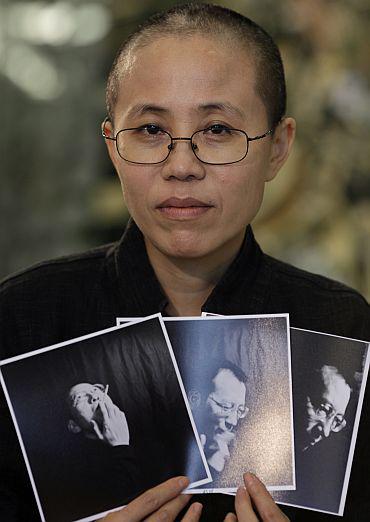By Christopher Carbone
Chinese state terrorism in East Turkestan.
China is collecting DNA and other biometric data from the population in East Turkestan is a “gross violation” of global norms, Human Right Watch said Wednesday.
Authorities have collected DNA samples, fingerprints, iris scans, and blood types of all residents in the region between the ages of 12 and 65.
The DNA and blood types are being collected through a free annual physical exams program called Physicals for All, the human rights groups said.
The ongoing unrest in East Turkestan between Uighurs, a mostly Muslim people, and ethnic majority Han Chinese, has resulted in hundreds of people being killed and a sweeping security crackdown by the communist country, which blames Islamist militants for the fighting.
“East Turkestan authorities should rename their physical exams project ‘Privacy Violations for All,’ as informed consent and real choice does not seem to be part of these programs,” Sophie Richardson, China director of Human Rights Watch, said in a statement.
Chinese Foreign Ministry spokesman Lu Kang, asked about the report by Human Rights Watch, accused the group of making “untrue” statements.
Reuters reports that government workers have to “earnestly safeguard the peoples’ legal rights,” but the plan set forth made no mention of a need to inform people fully about the campaign or of any option for people to decline to take part.
State media have said participation in the physical exams was "voluntary".
The ongoing unrest in East Turkestan between Uighurs, a mostly Muslim people, and ethnic majority Han Chinese, has resulted in hundreds of people being killed and a sweeping security crackdown by the communist country, which blames Islamist militants for the fighting.
“East Turkestan authorities should rename their physical exams project ‘Privacy Violations for All,’ as informed consent and real choice does not seem to be part of these programs,” Sophie Richardson, China director of Human Rights Watch, said in a statement.
Chinese Foreign Ministry spokesman Lu Kang, asked about the report by Human Rights Watch, accused the group of making “untrue” statements.
Reuters reports that government workers have to “earnestly safeguard the peoples’ legal rights,” but the plan set forth made no mention of a need to inform people fully about the campaign or of any option for people to decline to take part.
State media have said participation in the physical exams was "voluntary".
Richardson said it is not.
“The mandatory databanking of a whole population’s biodata, including DNA, is a gross violation of international human rights norms, and it’s even more disturbing if it is done surreptitiously, under the guise of a free health care program,” Richardson said.
Human Rights Watch cited an unidentified East Turkestan resident saying he feared being labeled with “political disloyalty” if he did not participate, and that he had not received any results from the health checks.
The official Xinhua news agency in November cited health authorities as saying 18.8 million people in the region had received such physicals in 2017, reports Reuters.
Human Rights Watch in May documented the Chinese police’s searchable, nationwide DNA database with 40 million entries from people, including dissidents and migrants.
“The mandatory databanking of a whole population’s biodata, including DNA, is a gross violation of international human rights norms, and it’s even more disturbing if it is done surreptitiously, under the guise of a free health care program,” Richardson said.
Human Rights Watch cited an unidentified East Turkestan resident saying he feared being labeled with “political disloyalty” if he did not participate, and that he had not received any results from the health checks.
The official Xinhua news agency in November cited health authorities as saying 18.8 million people in the region had received such physicals in 2017, reports Reuters.
Human Rights Watch in May documented the Chinese police’s searchable, nationwide DNA database with 40 million entries from people, including dissidents and migrants.
A DNA database allows police not only to search for an exact match, but also for those who are related family members.
